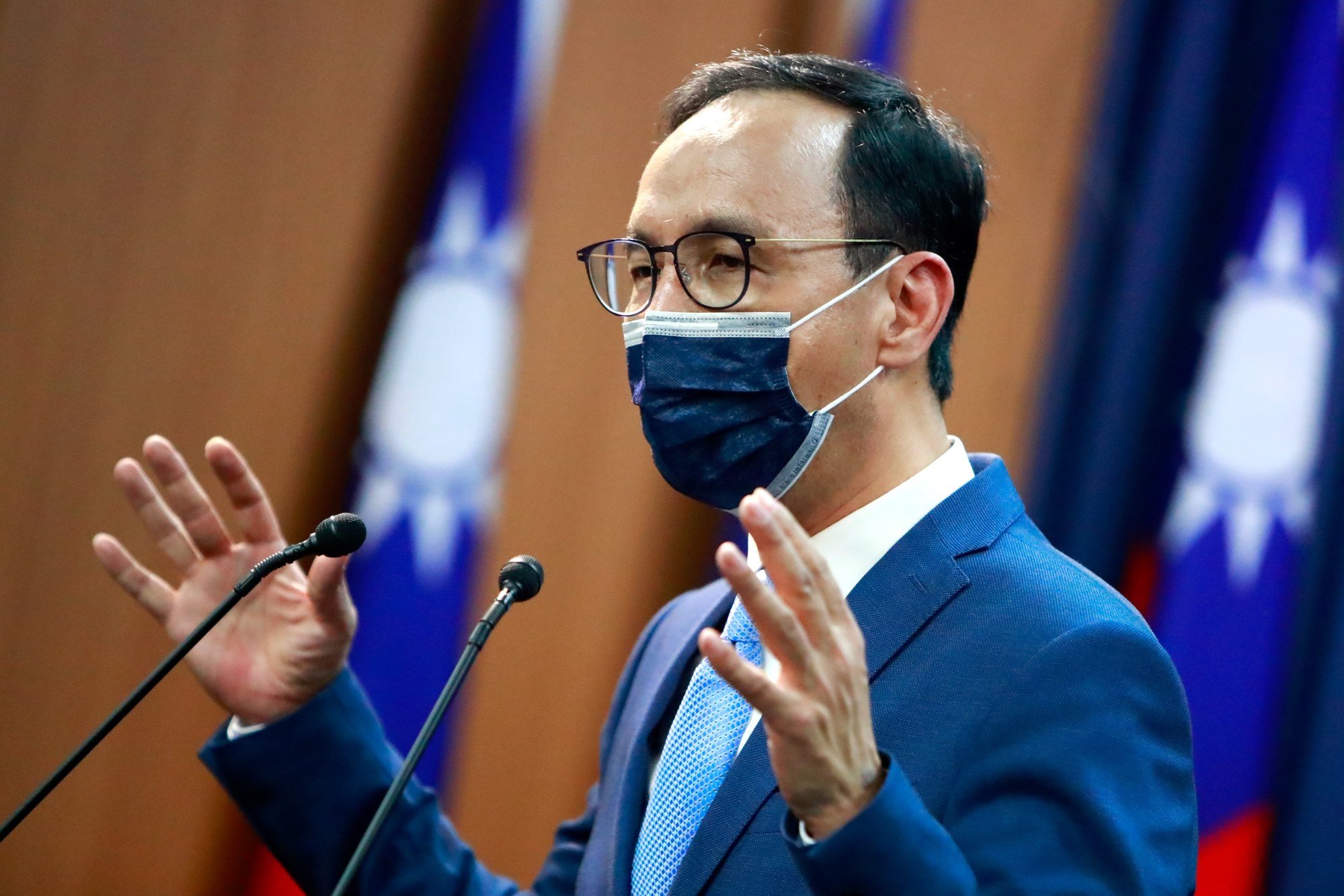
Taiwan’s KMT opposition party reopens US office to have a greater voice in Washington
- The office was set up this year and will be officially opened next month when party chairman Eric Chu visits America
- The ruling DPP has increased its influence over US policymakers by maintaining an office even when in power, but the KMT shut its office in 2008
“We will focus our visit in Washington where arrangements have been made for the chairman to meet members of the US national security team, including those from the White House, National Security Council, Department of State and Department of Defence,” said Alexander Huang, the KMT’s international affairs director and head of the representative office in Washington.
Huang said Taiwan-US relations were multifaceted and the two sides were expected to touch on issues including politics, trade, and health.
“The American side also wants to know what would be the KMT’s views about cross-strait and Indo-Pacific strategic situations in the next five to 10 years and its ability to maintain cross-strait peace and stability,” Huang said.
He said Chu had been invited to deliver a keynote speech in Washington, at an event organised by two or three American think tanks, outlining the KMT’s stance on these matters as well as ways the party could improve its communications with the United States.
The office was set up earlier this year after a 13-year absence with Eric Huang – the KMT’s deputy international affairs director – serving as resident representative in the absence of Alexander Huang, who will remain largely in Taiwan.
The KMT first set up a representative office in the US along with its smaller ally the People’s First Party in 2004 when the independence-leaning Democratic Progressive Party was in power.

On whether Chu might use his trip to promote his presidential bid as some people have speculated, Huang said the visit had nothing to do with the 2024 election, and the party merely hoped to rebuild its presence in the US as soon as possible.
He said Chu originally planned to visit the US in mid-May but decided to postpone it to June 1 due to the pandemic and the KMT concern that Joe Biden’s planned Asian visit near the end of this month might mean the officials Chu wanted to meet had gone overseas with the US president.
The resumption of its presence in the US was never meant to compete with the DPP, which kept its representative office open when it first took power in 2000, Alexander Huang said.
“Rather, we want to offer the US an alternative voice on what has happened in Taiwan and what exactly KMT policies are vis-à-vis domestic, international and cross-strait relations,” Huang said.
The DPP has maintained connections with US politicians and academics for decades. Years of lobbying of US politicians by pro-DPP groups, including the non-profit Formosan Association for Public Affairs, has helped establish a considerable influence in the US.
Cross-strait relations became warmer during Ma’s presidency, but have steadily worsened since Tsai replaced him, with Beijing accusing her of refusing to accept the one-China principle because she wants to promote independence.
Beijing considers Taiwan its territory and has never renounced the use of force to bring it under its control. It has also warned the US – which switched diplomatic recognition to Beijing from Taipei four decades ago – against having official contacts with the island.
Huang said the KMT adopted a “low risk and guardrail” policy in dealing with the mainland with the aim of reducing risk as much as possible while maintaining cross-strait interactions.
“This is the strong point of the KMT,” said Huang, who is also a professor of international relations and strategic studies and well-versed in US and cross-strait affairs.
Chu will travel to Washington via San Francisco and will also visit New York and Los Angeles before returning to Taiwan on June 12.
Others in the party include KMT vice-chairman Andrew Hsia, a former diplomat, and KMT legislator Chen I-hsin, a former presidential spokesman.

